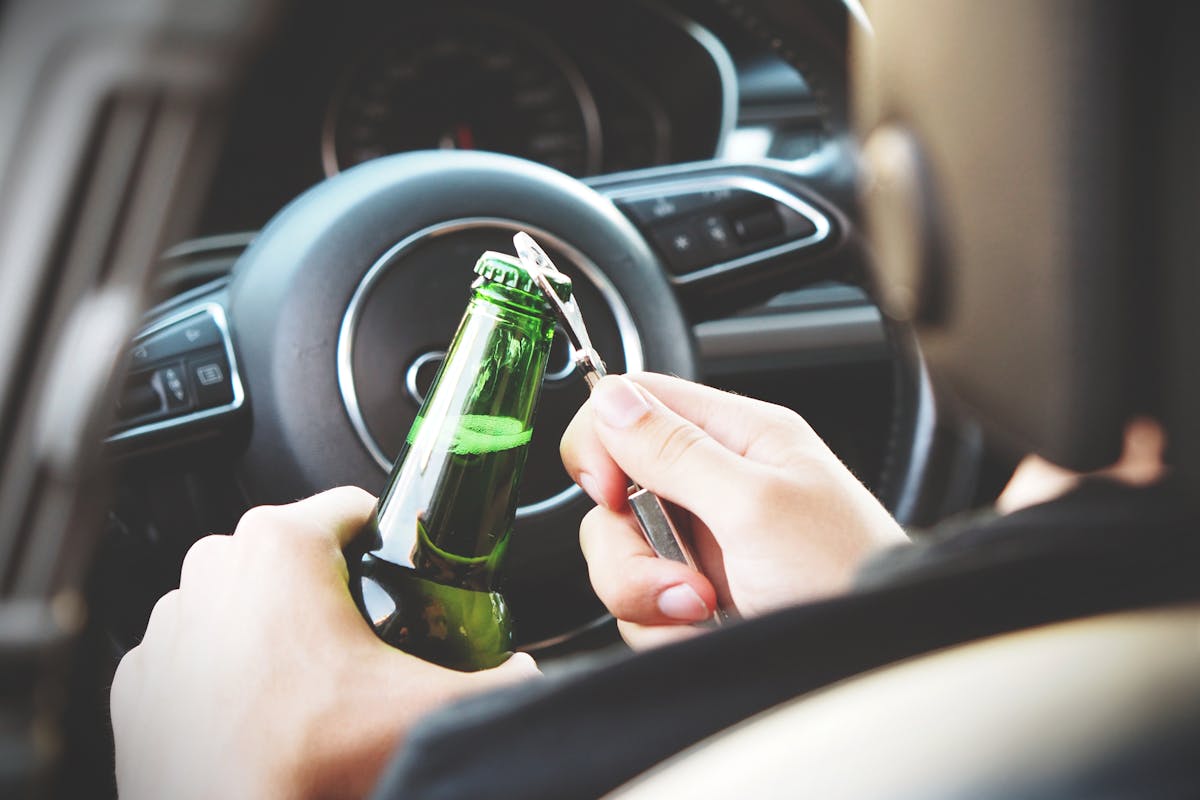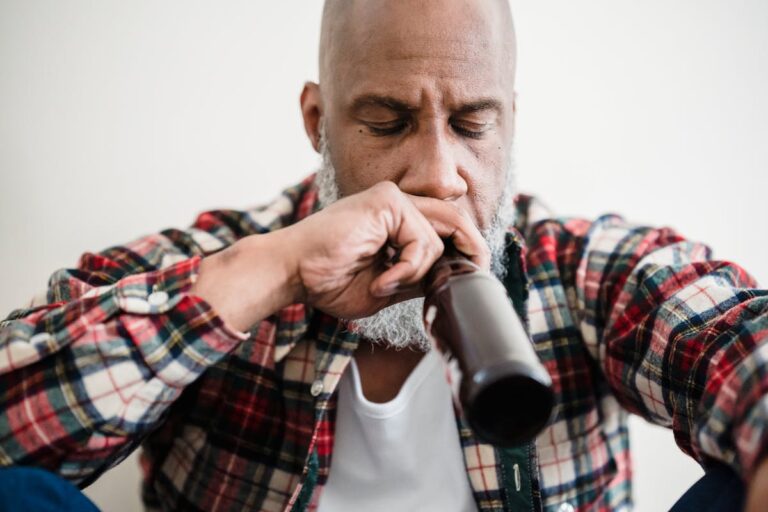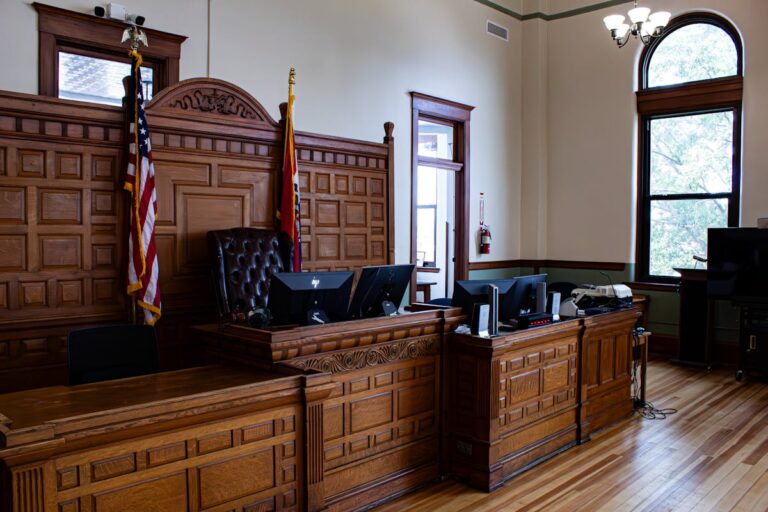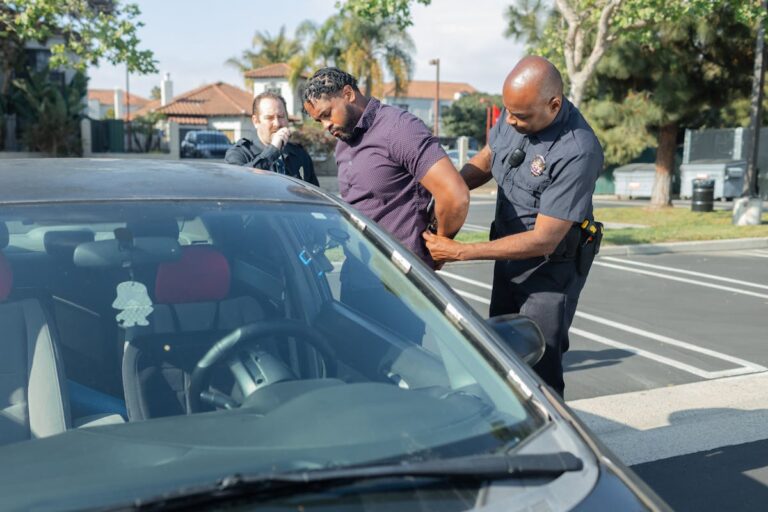Can You Drink an Alcohol as a Passenger in a Car in NC
In North Carolina, the Open Container Law potentially allows for certain situations where alcohol consumption as a car passenger might be acceptable. Nevertheless, these exceptions carry legal restrictions and implications. Understanding North Carolina’s alcohol policies is crucial to grasp the limitations and consequences of drinking alcohol in a car in this state.
Understanding Open Container Laws
Open container laws in North Carolina prohibit open alcohol containers in a vehicle’s passenger area, whether moving or parked. Consumption of alcohol can impair judgment, coordination, and reaction times, fostering potential risks in driving. Even as a passenger, alcohol consumption can heighten distracted driving risks. Upholding responsible drinking habits involves every vehicle occupant, including driver and passengers, necessitating abstinence from alcohol consumption in a moving vehicle. Adherence to open container laws ensures legal compliance and reduces alcohol-related vehicular risks, bolstering road safety. Understanding these laws forms the basis for comprehending broader alcohol policies in North Carolina.
North Carolina’s Alcohol Policies
To comprehend North Carolina’s passenger alcohol consumption rules, we scrutinize the state’s Open Container Law, its violation penalties, and applicable legal exceptions. This understanding clarifies the state’s perspective on in-car drinking and informs decision-making. This text, optimized for semantic search engines and NLP, prioritizes brevity, clarity, and context, ensuring every word serves a purpose.
NC’s Open Container Law
North Carolina’s Open Container Law prohibits passengers from consuming alcohol in moving vehicles. This law, part of the state’s strict alcohol policies, aims to increase road safety and reduce alcohol-related accidents. Public perception, shaped by legal, social, and cultural factors, views the Open Container Law as a crucial safety measure. The societal acceptance of this law reflects North Carolina’s culture prioritizing public safety and communal welfare over individual liberties in terms of alcohol consumption. This law discourages irresponsible drinking in vehicles, promoting a safer drinking culture within the state.
Penalties for Violations
North Carolina’s Open Container Law violations carry penalties reflecting a strong stance against vehicle-based irresponsible alcohol use. Designed to discourage reckless actions, these penalties foster road safety.
A first offense typically results in a Class 3 misdemeanor, carrying a fine up to $200. Subsequent offenses may escalate to Class 2 misdemeanors, with potential fines of up to $1,000. Convictions can also add points to the offender’s license, possibly leading to increased insurance premiums or license suspension in severe cases.
The state’s alcohol policies highlight the role of designated drivers. Legal consequences can result if these drivers, expected to refrain from alcohol, permit passengers to break the Open Container Law.
Understanding alcohol absorption rates is crucial. The law acknowledges that alcohol consumption doesn’t immediately equal intoxication, as absorption continues post-drinking. Therefore, passengers who recently consumed alcohol may still pose a risk, bolstering strict enforcement of the Open Container Law.
Understanding Legal Exceptions
North Carolina alcohol policies, while strict, have legal exceptions. These exceptions permit passengers to consume alcohol under specific circumstances in vehicles. An example is in vehicles-for-hire, such as limousines or party buses. Another exception is in the living quarters of a housecar or motorhome. Knowledge of these exceptions can prevent legal consequences like fines or imprisonment. Hence, understanding North Carolina’s alcohol laws is essential for passengers.
Liquor Laws in Vehicles Explained
North Carolina’s open container law impacts all vehicle occupants, regulating possession and consumption of alcohol in cars. Non-compliance risks severe legal penalties. Understanding and adhering to this law is crucial.
North Carolina’s Open Container Law
In North Carolina, the Open Container Law disallows open alcoholic beverages in any vehicle, moving or stationary, apart from specific situations.
- Public transportation: Open alcoholic containers are forbidden in the passenger sections of public vehicles, such as buses and taxis, for public safety and order.
- Outdoor events: Special permits may grant permission for open containers at outdoor events, but this doesn’t include vehicles. All open containers must be properly discarded post-event.
- Exceptions: Open containers may be allowed in certain vehicles like limousines and motor homes, provided the driver does not possess an open container.
- Designated areas: Open containers can only be in areas unreachable to the driver, such as a locked glove compartment or trunk.
- Non-alcoholic beverages: The law only restricts alcoholic beverages, not non-alcoholic ones.
Consequences for Violations
North Carolina enforces its Open Container Law strictly, with a Class 3 misdemeanor and up to $200 fine for first offenses. Repeat offenses may lead to escalating penalties such as increased fines and potential jail time.
Public Intoxication, another serious violation, can result in up to 30 days in jail, a fine of $200, and a misdemeanor conviction. Sobriety Test failure can lead to arrests, affecting not only drivers but also passengers.
Open container law violations also impact the vehicle operator’s driver’s license. The DMV may add points to the driving record, leading to higher insurance rates or license suspension in severe cases. Therefore, all vehicle occupants must understand these laws and consequences to avoid legal issues.
Legal Consequences of Drinking in Cars
In North Carolina, consuming alcohol in vehicles, even as a passenger, leads to serious legal implications. This activity, besides endangering safety, signifies public drunkenness and potential alcohol addiction.
Five key legal consequences include:
- Criminal charges: North Carolina law classifies public intoxication as a misdemeanor, with penalties such as jail, fines, or community service.
- Court-ordered treatment: Courts may mandate alcohol addiction treatment, which can be expensive and time-intensive.
- Employment termination: Certain employers may fire employees with criminal convictions.
- Rise in insurance rates: Convictions may elevate auto insurance premiums.
- Driver’s license suspension: Drivers might face penalties, like license suspension, if a passenger is drinking.
These outcomes highlight the gravity of vehicle passenger drinking and the necessity for responsible road behavior.
Exceptions to the Open Container Law
Exceptions to the open container law in North Carolina include certain situations. One exception is in the living quarters of house coaches or trailers. Another is the passenger area of vehicles used for transporting people for compensation, such as buses and taxis. These exceptions, while seeming like legal loopholes, are designed for certain circumstances, not to enable irresponsible drinking.
Unopened containers are also an exception. The law only applies to open containers or those with broken seals. Passengers can therefore carry unopened alcohol bottles.
These exceptions do not endorse drinking while traveling. The open container law in North Carolina aims to promote road safety and prevent drunk driving. Even with these exceptions, responsible drinking and transportation of alcohol remain crucial.
Impact on Auto Insurance Rates
Drinking alcohol as a car passenger affects auto insurance rates. Penalties for passengers and rate increases after incidents are potential impacts. This text explains these financial consequences.
Insurance Penalties for Passengers
Insurance penalties arise for passengers consuming alcohol in vehicles, escalating auto insurance rates due to perceived risk from insurers. The possible implications for auto insurance are:
- Insurance Premiums Rise: Alcohol consumption by passengers is perceived as a risk and results in elevated premiums.
- Denial of Insurance Claims: Insurers may refuse claims if an accident transpires with alcohol-consuming passengers aboard.
- Policy Termination: Frequent instances of passengers drinking in the vehicle may prompt insurers to cancel the policy.
- Challenge in Securing New Coverage: Post policy cancellation, acquiring new insurance coverage becomes difficult and costly.
- Legal Ramifications: Passengers consuming alcohol may face legal repercussions beyond insurance penalties.
Rate Hikes After Incidents
Incidents involving in-vehicle alcohol consumption often prompt substantial auto insurance rate hikes. This financial burden affects drivers, regardless of their participation in alcohol consumption, due to increased perceived risk. Strict rules against in-vehicle drinking can minimize these financial impacts and enhance safety for all road users. Sobriety education informs passengers about potential risks and consequences, fostering safer choices and helping keep insurance rates low.
Passenger Vs. Driver: Who’s Liable?
The delineation of liability in vehicle-related alcohol consumption incidents hinges on the roles of the driver and passenger. North Carolina, among other states, enforces specific laws addressing these roles.
- Drivers bear the legal burden of vehicle control and passenger safety. Alcohol-induced impairment, resulting in poor judgment and delayed reactions, renders drinking while driving both hazardous and illicit.
- Passengers, however, may be permitted to drink alcohol under certain circumstances. This allowance varies by state and vehicle type.
- In public transport scenarios, passenger alcohol consumption might be permissible but is generally discouraged to foster a safe and comfortable atmosphere.
- Pedestrian public alcohol consumption rules do not usually extend to vehicle passengers.
- Regardless of the regulations, both drivers and passengers should prioritize safety, mindful of potential repercussions.
Such distinctions provide a foundation for comprehending liability in the intricate matter of vehicular alcohol consumption.
The Role of Sobriety Checkpoints
Sobriety checkpoints, preventive measures enforcing DUI laws, play a key role in road safety by deterring and apprehending impaired drivers. These checkpoints remind individuals of the risks and consequences of intoxicated driving, encouraging responsible conduct.
Although checkpoint legality varies state-wise, it’s typically upheld for public safety reasons. In North Carolina, sobriety checkpoints are legal, common, and involve officers conducting tests to identify impaired drivers. These tests range from observation to formal procedures like walk-and-turn or one-leg stand tests.
It’s important to note that passengers may also face scrutiny at these checkpoints, particularly if they’re visibly consuming alcohol. This scrutiny is applicable even if the driver is sober, emphasizing the checkpoint’s role in ensuring everyone in a vehicle complies with the law.
Dealing With Law Enforcement
When dealing with law enforcement at North Carolina traffic stops or checkpoints, it’s vital to understand the legalities of passenger alcohol consumption. Keep calm and respectful. Remember, field sobriety tests aren’t mandatory. Breathalyzers, primarily for drivers, can occasionally involve passengers. If you’ve consumed alcohol, refrain from self-incriminating statements. You can deny personal or property searches without a warrant or probable cause. Note, while legal, passenger drinking does not exempt the driver from sobriety. Breathalyzer tests may verify driver sobriety, ensuring road safety. Understanding and acknowledging these aspects is key in law enforcement interactions.
Comparing NC Laws to Other States
North Carolina’s vehicle alcohol laws differ from other states. For example, Missouri and Mississippi allow passenger alcohol consumption, indirectly promoting alcohol tourism. However, North Carolina strictly forbids this practice to mitigate road accidents.
Science supports these strict laws. Studies show that alcohol consumption by passengers can distract drivers, escalating accident risks. Consequently, North Carolina’s stringent laws prioritize road safety based on these findings.
Connecticut, though allowing passenger drinking, prohibits excessive intoxication. The state tries to strike a balance between personal freedom and public safety, a balance North Carolina tilts towards safety.
Tips to Avoid Legal Trouble
To navigate North Carolina’s strict vehicle alcohol laws, adopt these strategies:
- Designate a sober driver: Ensure one person abstains from drinking to drive safely.
- Comprehend open container laws: In NC, open alcohol containers are illegal in vehicles for both drivers and passengers.
- Drink responsibly: Stay within personal limits and avoid overconsumption.
- Consult legal professionals: They clarify intricate laws and elucidate personal rights.
- Choose alternative transportation post-drinking: Post-alcohol consumption, opt for taxis, rideshares, or public transit.
Misconceptions About Drinking in Cars
Contrary to popular belief, North Carolina’s open container laws prohibit all vehicle occupants, including passengers, from possessing or consuming open alcoholic beverages. This law aims to curtail alcohol-related issues, such as impaired judgement, lowered inhibitions, and potential addiction. Passengers must avoid alcohol consumption in vehicles to ensure safety and avoid distractions for the driver. Violating these laws can lead to penalties, including fines or imprisonment. Thus, it’s crucial to rectify this misconception for safe, lawful travel on North Carolina’s roads.
Frequently Asked Questions
What Constitutes a ‘Open Container’ According to North Carolina Law?
In North Carolina law, ‘open container’ denotes any container housing alcohol where the seal is broken. Legal ramifications encompass fines or jail time, exclusive to certain non-driving vehicle zones.
Can the Driver Be Penalized if a Passenger Is Caught Drinking Alcohol in the Car?
Yes, penalties exist for drivers in North Carolina when passengers consume alcohol, due to the law’s focus on impaired supervision and vehicle maintenance free from open alcohol containers.
Are There Specific Penalties for Underage Passengers Consuming Alcohol in a Vehicle?
In North Carolina, severe penalties apply to underage individuals consuming alcohol in vehicles. The risks include detrimental intoxication effects, often heightened by peer influence. These actions exacerbate the legal implications.
How Does Drinking in a Vehicle Affect a Passengers Criminal Record?
Consuming alcohol in a vehicle can lead to criminal charges like open container violations, negatively affecting a passenger’s record. It also poses potential health risks related to alcohol consumption.
What Are the Laws Regarding Alcohol Consumption in Taxis or Ride-Share Services in Nc?
“Alcohol consumption in taxis or ride-share services, such as Uber or Lyft, is generally not allowed in North Carolina. This rule is pivotal for safety and to manage alcohol’s potential negative effects on passenger behavior.”







